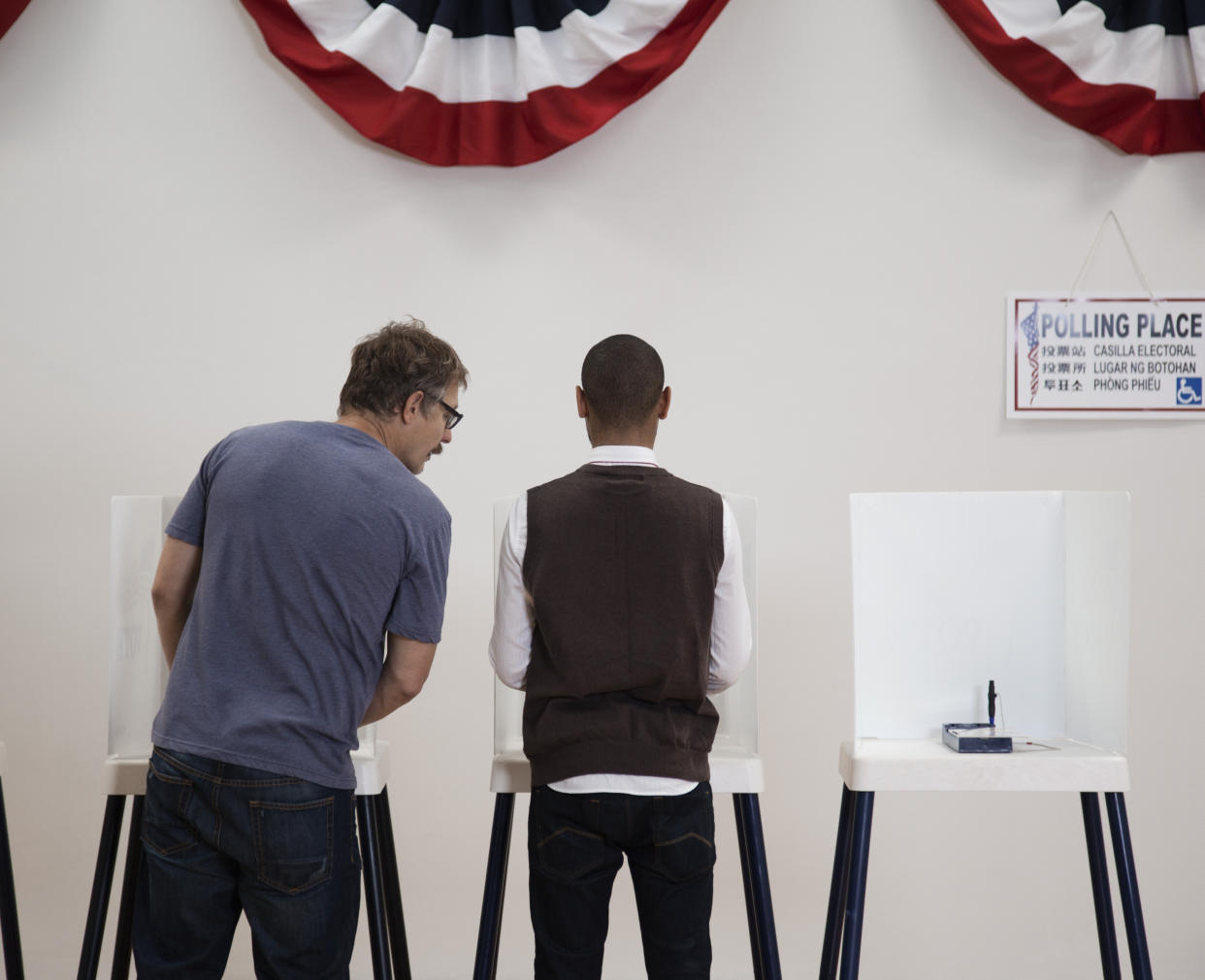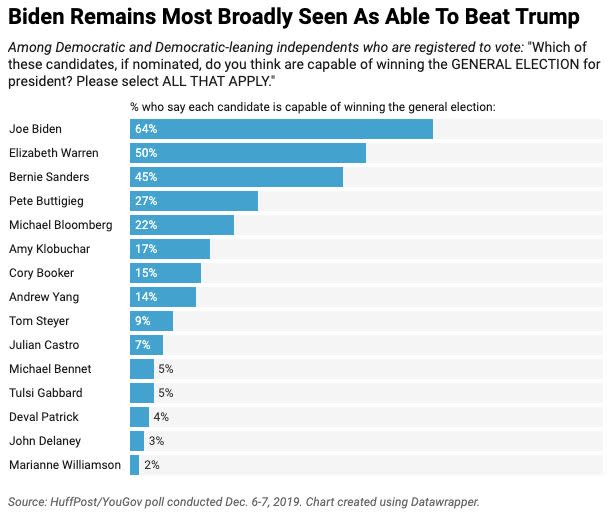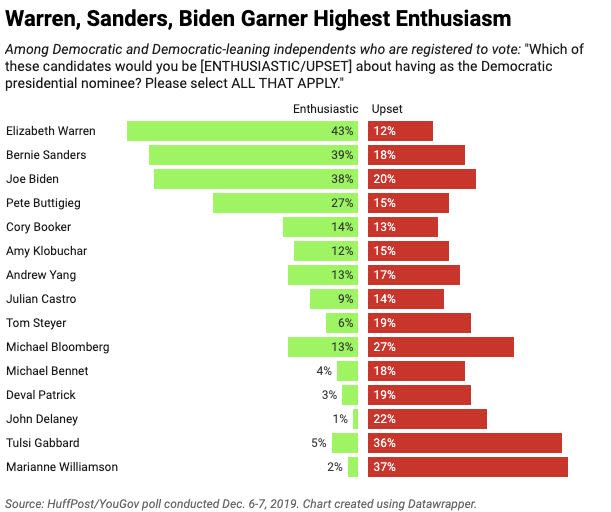About A Quarter of Democratic Voters Say They're Deciding On Electability

Most Democratic and Democratic-leaning voters say they’re planning to vote for their favorite candidate in next year’s primary, a new HuffPost/YouGov survey finds, but about one-quarter say they’re instead planning to vote for a more electable alternative.
Sixty percent say they’re planning to vote for their favorite candidate, and 24% say they’re planning to choose someone who isn’t their favorite but has a better shot of winning. The rest aren’t sure.
There are a few grains of salt to be taken here. First, people aren’t always great at explaining their decision-making process, even to themselves. And second, many voters haven’t actually made a firm decision yet. Slightly over half of Democratic and Democratic-leaning voters ― 55% ― say they have a good idea of whom they’ll vote for in the primary next year. Another 36% say they’re still making up their minds.
The results, however, may help provide a fuller picture of how much of a role the idea of “electability” plays in shaping voters’ preferences. Polls this year have repeatedly found Democrats to be focused on finding a nominee who’s able to bring down President Donald Trump. But most primary voters also believe that multiple candidates would be able to pull off a victory: In the most recent survey, nearly three-quarters say at least two candidates could win, and roughly half say three or more candidates could do so.
Former Vice President Joe Biden remains the candidate most broadly seen as capable of winning the general election. A 64% majority says Biden can win, with half saying the same of Sen. Elizabeth Warren (D-Mass.), 45% of Sen. Bernie Sanders (I-Vt.), 27% of South Bend, Indiana, Mayor Pete Buttigieg and 22% of former New York City Mayor Michael Bloomberg. No other candidate was viewed as capable of winning by more than one-fifth of those surveyed.

Democratic and Democratic-leaning voters are most likely to be excited about the prospect of nominating Warren (43% say they’d be enthusiastic if she were the nominee), Sanders (39%) and Biden (38%), followed by Buttigieg at 27%. About 1 in 5 would be upset if Biden were nominated, with 18% saying the same of Sanders, 15% of Buttigieg and 12% of Warren. The only candidates whose nomination would be upsetting to more than one-third of these voters are Rep. Tulsi Gabbard (D-Hawaii) and self-help author Marianne Williamson.

Overall, 35% of Democratic and Democratic-leaning voters say they’re enthusiastic about the state of the Democratic primary field, 40% that they’re satisfied, 14% that they’re dissatisfied, and just 4% say they’re upset.
This poll didn’t ask Democrats directly for whom they intended to vote. But it comes amid a spate of other polls that find Biden retaining his front-runner status, with Sanders and Warren also polling in the double digits and Buttigieg bringing up fourth place. FiveThirtyEight’s national polling average puts Biden at about 26%, with Sanders at 17%, Warren at 15% and Buttigieg at 10%. The Economist’s average, similarly, has Biden taking 26% to Warren and Sanders’ 16% each, with Buttigieg at 10%. RealClearPolitics finds Biden at about 28%, Sanders at 18%, Warren at 16% and Buttigieg at 9%.
Use the widget below to further explore the results of the HuffPost/YouGov survey, using the menu at the top to select survey questions and the buttons at the bottom to filter the data by subgroups:

The HuffPost/YouGov poll consisted of 1,000 completed interviews conducted Dec. 6-7 among U.S. adults, including 364 Democratic and Democratic-leaning registered voters, using a sample selected from YouGov’s opt-in online panel to match the demographics and other characteristics of the adult U.S. population.
HuffPost has teamed up with YouGov to conduct daily opinion polls. You can learn more about this project and take part in YouGov’s nationally representative opinion polling. More details on the polls’ methodology are available here.
Most surveys report a margin of error that represents some but not all potential survey errors. YouGov’s reports include a model-based margin of error, which rests on a specific set of statistical assumptions about the selected sample rather than the standard methodology for random probability sampling. If these assumptions are wrong, the model-based margin of error may also be inaccurate. Click here for a more detailed explanation of the model-based margin of error.
Love HuffPost? Become a founding member of HuffPost Plus today.
This article originally appeared on HuffPost.

